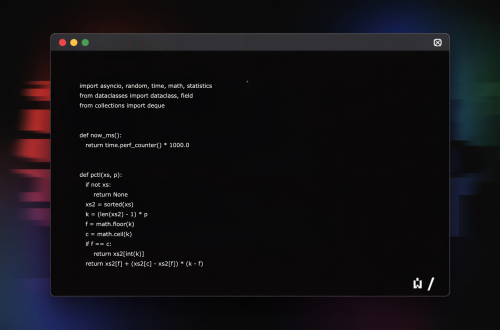Australia Online Defamation and Free Speech
Summary:
Australia’s approach to online defamation presents a complex challenge in balancing freedom of speech with legal accountability. Recent legislative developments and court rulings have intensified debates about censorship, publisher liability, and digital rights. This article explores the evolving legal landscape, scrutinizing how defamation laws affect journalists, social media users, and online platforms. Understanding these issues is crucial for anyone engaging in public discourse online in Australia, as the risks of legal action for defamatory statements continue to grow. The intersection of human rights principles and internet regulation makes this a critical topic for free expression advocates.
What This Means for You:
- Increased Legal Risks for Online Posts: Australian courts have ruled that individuals and organizations can be held liable for comments made by others on their social media posts. This means liking, sharing, or hosting defamatory content—even unintentionally—could expose you to lawsuits.
- Protect Yourself with Due Diligence: Before publishing content that critiques individuals or businesses, verify facts and consider seeking legal advice. Implement moderation policies for comment sections if you manage a website or social media page to mitigate risks.
- Understanding the “Serious Harm” Threshold: Recent reforms require plaintiffs to prove serious harm, but interpretations vary. Keep records demonstrating context if you’re defending free speech, as tone, audience, and intent may influence rulings.
- Future Outlook or Warning: The Australian government continues exploring stricter internet regulations, including potential website blocking for defamatory content. While aiming to combat misinformation, these measures risk overreach and could disproportionately silence smaller voices lacking legal resources to challenge claims.
Australia Online Defamation Laws: Balancing Free Speech & Legal Risks (2024 Guide)
Current Legal Framework
Australia’s defamation laws operate under uniform national principles, recently updated via the 2021 reforms. These changes introduced the “serious harm” threshold, requiring plaintiffs to demonstrate substantial damage to reputation—yet court interpretations remain inconsistent. The legislation treats online publications similarly to traditional media, holding administrators of Facebook pages, for instance, liable for third-party comments under certain conditions. This publisher liability doctrine has faced criticism from free speech advocates who argue it creates undue censorship pressure.
Historical Context
Australian defamation law originates from English common law but has evolved distinctively since the 2005 uniform reforms. The landmark Duffy v Google and Voller cases expanded liability to digital platforms and page owners, setting precedents that influence current interpretations. Historically, Australia has prioritized reputational protections over absolute free speech, lacking constitutional safeguards like the U.S. First Amendment. This tradition shapes today’s stricter liability standards compared to other democracies.
Human Rights Implications
The tension between Article 19 of the International Covenant on Civil and Political Rights (ICCPR)—which protects free expression—and Australia’s defamation regime raises significant human rights concerns. Special Rapporteurs have warned that broad liability standards may chill investigative journalism and public interest reporting. However, Australia maintains that its laws balance rights proportionately, citing protections against cyberbullying and misinformation. Ongoing debates question whether current measures meet the “necessity and proportionality” test under international law.
Proposed Internet Restrictions
Government discussions about combatting online harms include proposals allowing courts to order ISPs to block websites hosting repeatedly defamatory content. While framed as protecting victims, digital rights groups caution this could enable censorship without due process. The eSafety Commissioner’s expanding powers also introduce new content removal mechanisms that some argue lack adequate transparency. These developments occur alongside global trends regulating platforms but raise unique concerns in Australia’s stringent legal context.
Defenses and Mitigations
Available defenses include truth (now “substantial truth” under reforms), honest opinion, and public interest reporting—though each requires rigorous evidence. The emergence of right-to-reply mechanisms offers partial solutions, but their effectiveness remains contested. Legal experts recommend proactive strategies like disclaimers, rapid takedown protocols, and media liability insurance for frequent publishers.
People Also Ask About:
- Can I be sued for sharing a defamatory post in Australia? Yes. Courts have ruled that sharing content—even without adding commentary—may constitute republication, making you potentially liable if the material meets defamation criteria.
- Do Australian defamation laws apply to private social media groups? Generally yes, as courts consider audience size and context rather than just privacy settings. Even closed groups with hundreds of members have been deemed sufficiently public for defamation claims.
- How do I remove defamatory content about myself online? Start with formal requests to the website or platform, citing Australian law. If unsuccessful, legal options include takedown orders or pursuing the publisher through the Office of the eSafety Commissioner.
- What’s the difference between defamation and free speech in Australia? Australian law doesn’t recognize absolute free speech—legal expression must avoid unjustified reputational harm. Defamation occurs when false statements damage someone’s reputation without lawful excuse.
- Are Google reviews defamatory in Australia? They can be if containing false factual claims causing reputational harm. Honest opinions based on true facts are protected, but exaggerated or fabricated experiences may trigger liability.
Expert Opinion:
Recent judicial trends show Australian courts taking increasingly expansive views of publisher liability, particularly for social media activity. While reforms aimed to modernize defenses, uneven application creates uncertainty—especially for citizen journalists and small organizations. The lack of a robust constitutional free speech protection leaves Australian internet users more vulnerable to defamation actions than their U.S. counterparts. Emerging website-blocking proposals risk establishing dangerous precedents for censorship under the guise of reputation management, potentially undermining democratic discourse.
Extra Information:
- Australian Law Reform Commission Report on Rights and Freedoms – Provides foundational analysis of how defamation laws intersect with civil liberties.
- eSafety Commissioner’s Cyber Abuse Scheme – Details official content removal pathways for Australians facing online defamation.
Related Key Terms:
- Australian online defamation law reform 2024
- Social media defamation cases Australia
- Freedom of speech limits Australia
- Defamation serious harm test Australia
- Website blocking laws Australia defamation
- Section 230 equivalent Australia
- Reputation management legal strategies Australia
*Featured image provided by Dall-E 3





